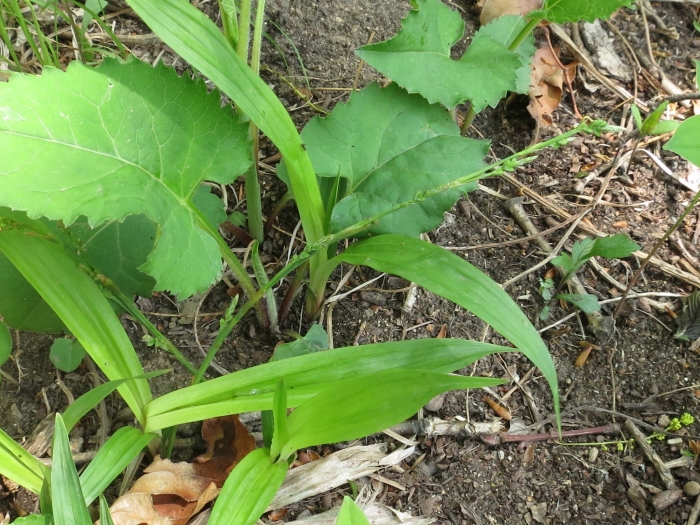Creeping Broadleaf Sedge
(Carex siderosticta)
Creeping Broadleaf Sedge (Carex siderosticta)
/
/

Repina Tatyana
CC BY 4.0
Image By:
Repina Tatyana
Recorded By:
Copyright:
CC BY 4.0
Copyright Notice:
Photo by: Repina Tatyana | License Type: CC BY 4.0 | License URL: http://creativecommons.org/licenses/by/4.0/ | Rights Holder: Repina Tatyana | Publisher: iNaturalist | Date Created: 2019-03-13T13:37:37-07:00 |

























Estimated Native Range
Summary
Carex siderosticta, commonly known as Creeping Broadleaf Sedge, is a perennial grass that exhibits semi-evergreen to deciduous behavior, native to moist, shaded woodlands and forest floors in East Asia, including Korea, Japan, and parts of the Russian Far East. It typically forms dense clumps reaching a height and width of approximately 0.5-1 feet (0.2-0.3 meters). The plant features arching, broad leaves that provide a lush, textured ground cover throughout the growing season. Its inconspicuous greenish flowers appear in late spring to early summer, but it is primarily grown for its foliage.
Creeping Broadleaf Sedge is valued for its ability to thrive in shaded conditions, making it an excellent choice for woodland gardens, shaded borders, and as an understory plant in larger landscape designs. It is relatively low maintenance, requiring minimal care once established, and is appreciated for its ability to form a dense carpet that suppresses weeds. This sedge prefers consistently moist soils with good drainage and can tolerate a range of soil types, from clay to loam. While it is not known for serious pest or disease issues, it can suffer from root rot in overly wet conditions. It is not typically invasive but should be monitored to ensure it does not spread beyond its desired area in the garden.CC BY-SA 4.0
Creeping Broadleaf Sedge is valued for its ability to thrive in shaded conditions, making it an excellent choice for woodland gardens, shaded borders, and as an understory plant in larger landscape designs. It is relatively low maintenance, requiring minimal care once established, and is appreciated for its ability to form a dense carpet that suppresses weeds. This sedge prefers consistently moist soils with good drainage and can tolerate a range of soil types, from clay to loam. While it is not known for serious pest or disease issues, it can suffer from root rot in overly wet conditions. It is not typically invasive but should be monitored to ensure it does not spread beyond its desired area in the garden.CC BY-SA 4.0
Plant Description
- Plant Type: Grass
- Height: 0.5-1 feet
- Width: 0.25-0.5 feet
- Growth Rate: Moderate
- Flower Color: N/A
- Flowering Season: Spring, Summer
- Leaf Retention: Deciduous, Semi-Deciduous
Growth Requirements
- Sun: Part Shade, Full Shade
- Water: Medium
- Drainage: Medium
Common Uses
Bird Garden, Border Plant, Butterfly Garden, Deer Resistant, Groundcover, Low Maintenance, Street Planting, Water Garden
Natural Habitat
Moist, shaded woodlands and forest floors in East Asia
Other Names
Common Names: Roadleaf Sedge, Kinesisk Kämpestarr, 대사초, Kuan Ye Tai Cao, Tagane-So
Scientific Names: , Carex siderosticta,
GBIF Accepted Name: Carex siderosticta Hance